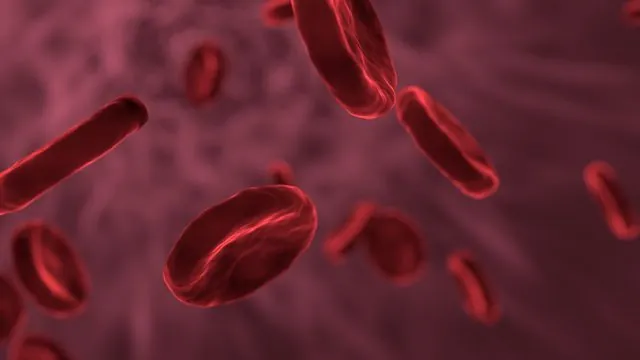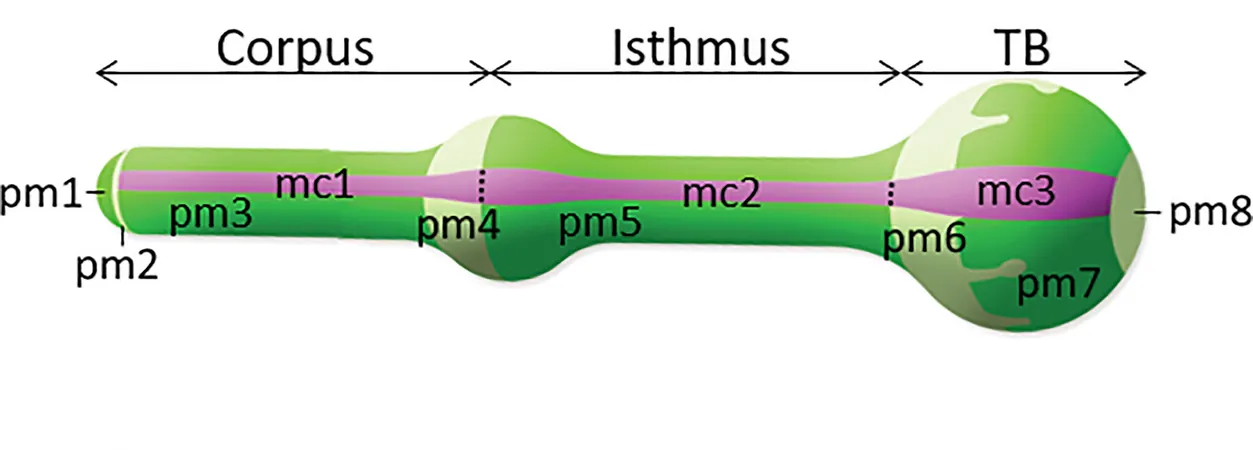
Discovering the Unsung Hero: How Glutamine Metabolism Fuels Healthy Red Blood Cell Development!
2024-11-18
Author: Yu
In a groundbreaking study, scientists at St. Jude Children’s Research Hospital unveiled the crucial role of glutamine metabolism in the process of red blood cell development. This discovery shines a light on a previously overlooked pathway that could lead to new therapeutic strategies for combating blood disorders like sickle cell disease and β-thalassemia.
Red blood cells (RBCs) are not only essential for oxygen transportation but also form a staggering 84% of all cells in the human body. Their unique metabolic requirements raise intriguing questions about how they maintain their energy without key organelles such as mitochondria.
Dr. Jian Xu, a leading researcher at St. Jude, points out, "Mature red blood cells don’t have organelles, such as mitochondria. This raises an important question about how they deal with metabolic needs in order to build such massive biomass." This insight sets the stage for understanding how metabolic processes are tightly regulated during the different stages of red blood cell maturation.
The team, which included co-author Dr. Min Ni, conducted extensive profiling of metabolic processes at each stage of RBC maturation. Surprisingly, they found that while immature blood cells break down glutamine for energy, mature cells shift gears entirely. "We noted a very surprising finding regarding glutamine," Dr. Xu explained. During later development stages, these cells not only stop breaking down glutamine but also start synthesizing it through a reversal of the usual metabolic pathway.
This shift is largely facilitated by glutamine synthetase, an enzyme that plays a critical role in detoxifying ammonium, a byproduct from heme production—the core component of hemoglobin. If ammonium accumulates, it can cause harmful oxidative stress, posing a significant risk to cell health. The discovery that red blood cells ramp up the production of glutamine synthetase demonstrates a vital detoxification process, which could have implications for treating various blood disorders.
The ramifications of these findings stretch far beyond academic interest; they could influence how we approach treating conditions like β-thalassemia, where current therapies aim to improve red blood cell maturation. Notably, in genetic studies, mutations in the glutamine synthetase gene are rarely observed, suggesting its essential functions for embryonic development and overall health.
By experimentally inactivating glutamine synthetase, researchers revealed a direct correlation between disrupted glutamine metabolism and the development of red blood cell disorders. The results indicated that disorders like β-thalassemia could be characterized by elevated levels of glutamate and ammonia and lower levels of glutamine—a metabolic profile reminiscent of glutamine synthetase deficiencies.
Additionally, this team's research has made a significant link between glutamine synthetase oxidation and β-thalassemia, opening doors for potential therapies that work by enhancing enzyme activity. Current treatments for conditions such as anemia in β-thalassemia utilize the drug luspatercept, which has effects that are not entirely understood. However, findings suggest that luspatercept improves glutamine metabolism, indicating a newfound method of action for this therapeutic option.
Moreover, the implications extend into approaches for treating sickle cell disease, where L-glutamine supplements have shown benefits. Dr. Xu hypothesizes that these supplements may bolster the glutamine levels needed for red blood cell function and health, a line of investigation that is currently being pursued.
In conclusion, this transformational research not only highlights glutamine as a critical player in red blood cell maturation but also proposes that metabolic markers like glutamine-to-glutamate ratios could serve as valuable indicators for a range of diseases. As scientists continue to explore these metabolic pathways, the future of treating blood disorders could become significantly brighter.
Stay tuned for the latest updates as researchers unravel more secrets about the metabolic processes impacting our health!


 Brasil (PT)
Brasil (PT)
 Canada (EN)
Canada (EN)
 Chile (ES)
Chile (ES)
 España (ES)
España (ES)
 France (FR)
France (FR)
 Hong Kong (EN)
Hong Kong (EN)
 Italia (IT)
Italia (IT)
 日本 (JA)
日本 (JA)
 Magyarország (HU)
Magyarország (HU)
 Norge (NO)
Norge (NO)
 Polska (PL)
Polska (PL)
 Schweiz (DE)
Schweiz (DE)
 Singapore (EN)
Singapore (EN)
 Sverige (SV)
Sverige (SV)
 Suomi (FI)
Suomi (FI)
 Türkiye (TR)
Türkiye (TR)